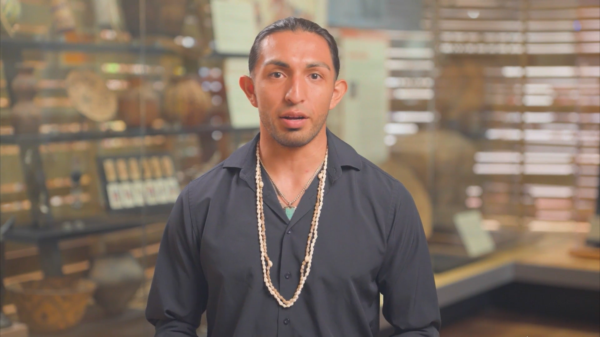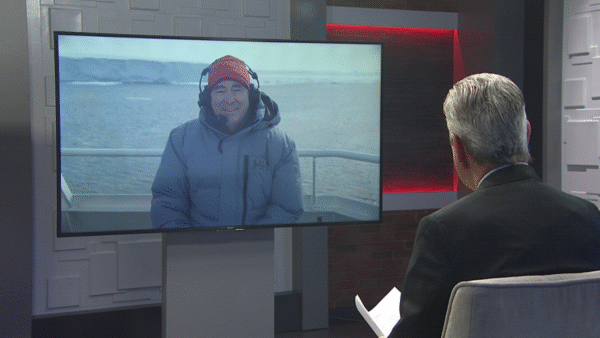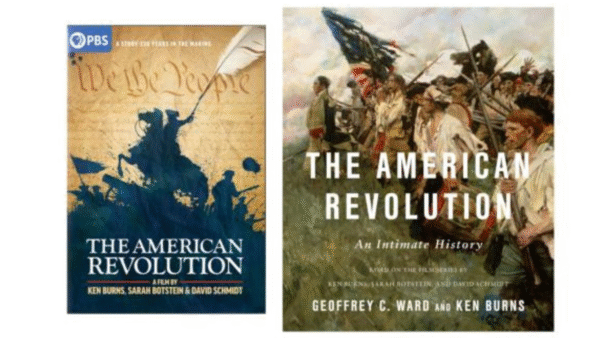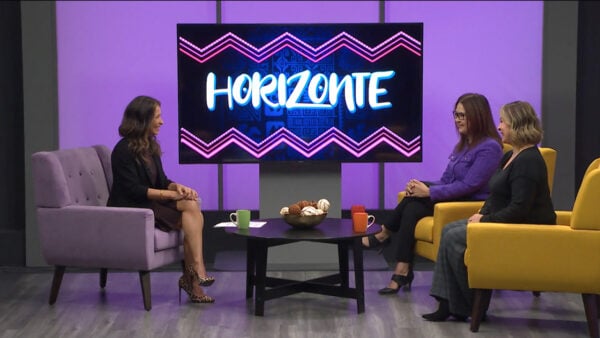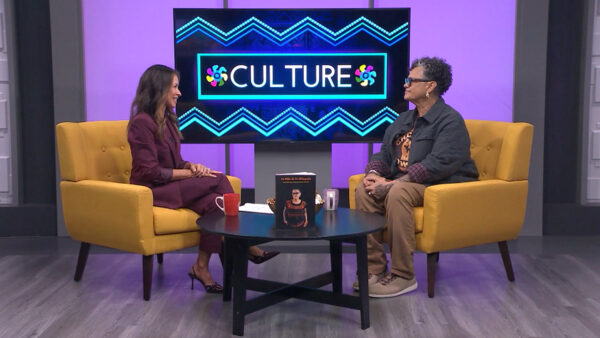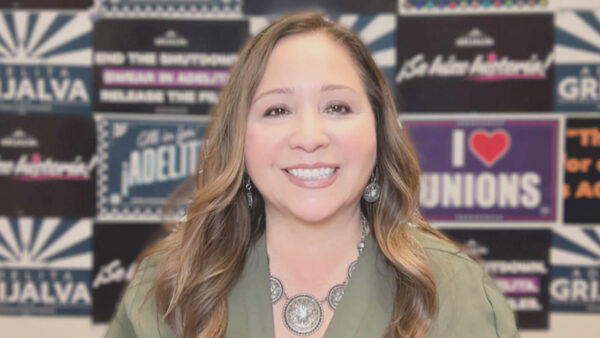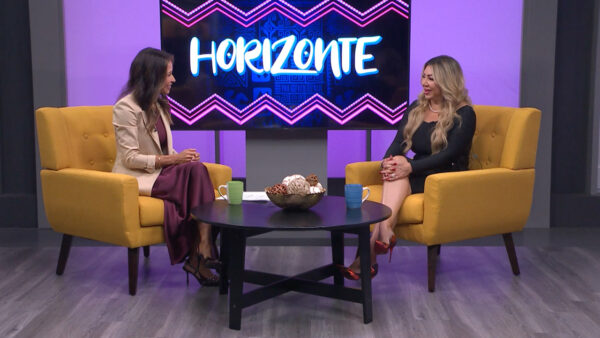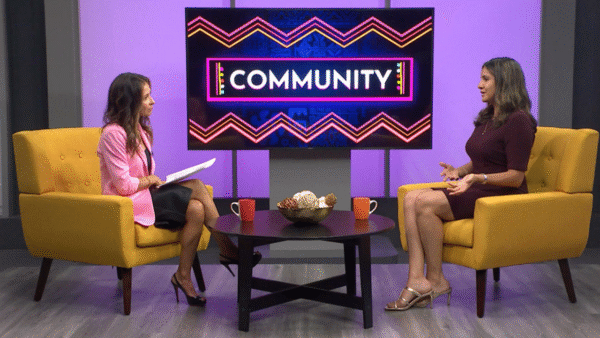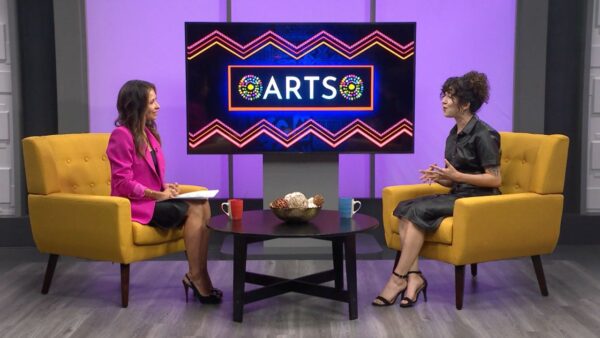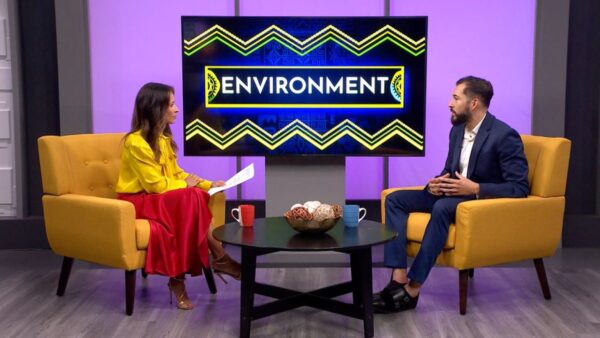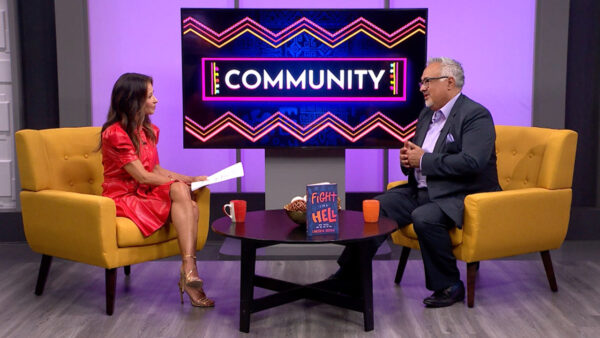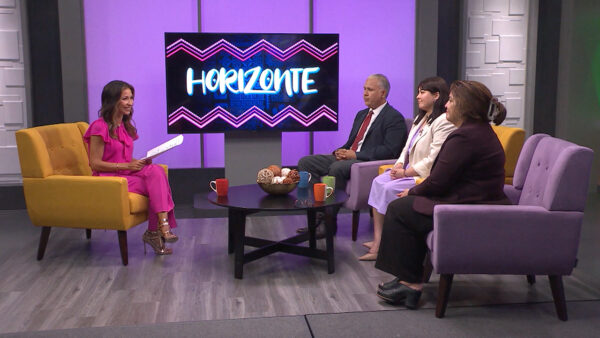The theme for this year’s Hispanic Women’s Conference is “Latina Power: Inspire! Educate! Elevate!”. We’ll talk to one of the conference speakers Erika Camacho, Assistant Professor of Math & Natural Sciences with the New College at ASU about her career and experience as one of Jaime Escalante’s students. Escalante was the former East Los Angeles high school teacher who taught the nation that inner-city students could master match high level math achievement. and who was portrayed by Edward James Olmos in the movie Stand and Deliver.
Josè Cà rdenas: Jaime Escalante taught calculus and advanced math at Garfield high school in East Los Angeles for 20 years. He showed the nation that inner city kids could master advanced mathematics. Escalante was the inspiration for the 1988 movie "Stand and Deliver." One of his former students is set to be a guest speaker for the Hispanic women's conference in October. With me tonight is Erika Camacho, an assistant professor with ASU's mathematical and natural sciences department at the new college. Dr. Comacho, welcome to Horizontè.
Erika Camacho: Thank you.
Josè Cà rdenas: Yours is quite an inspiring story. It began with your birth and initial years in Mexico. Tell us about that.
Erika Camacho: Right. I was born in Guadalajara, Mexico. And my father died when I was 3 months old. My mom had three jobs all at once. Being a maid, and working at a shoe store and working at a bakery restaurant place. Just to be able to support us. It was -- she had to manage all that and then because all the employees in the shoe store she was able to meet my stepdad. And they met and they wrote letters, and that's how they court each other. And then they decided to get married, and that's when we came to the United States.
Josè Cà rdenas: You moved to Los Angeles?
Erika Camacho: Yes. My three siblings and myself.
Josè Cà rdenas: And ultimately ended up living in one of the tougher parts of the city, East Los Angeles.
Erika Camacho: Yes. We started in south central, and we lived in a one bedroom apartment infested with mice and rats. And we had no furniture. And I remember that I used to love sleeping in between my siblings because I didn't want nice crawl over me first. This way would I get a warning. Then we moved to East Los Angeles to a two-bedroom amount. It was a little better but still in East Los Angeles where there's a lot of crime and violence.
Josè Cà rdenas: And there is where you attended Garfield high school.
Erika Camacho: Yes.
Josè Cà rdenas: Your story would be remarkable under any circumstance, but what makes it more special is you had the opportunity to work or be taught by inspired by Jaime Escalante, who as we noted in the introduction, was the inspiration for "Stand and Deliver."
Erika Camacho: Absolutely. And my passion for mathematics, my passion for helping others, and teaching, came from what I learned from Jaime Escalante.
Josè Cà rdenas: We just put a picture on the screen of Jaime Escalante with Edward James Olmos who played him in the movie. How accurate was the movie in terms of depicting the way he taught kids, high school kids, and how he inspired them?
Erika Camacho: I would say it would be 85 to 90% accurate.
Josè Cà rdenas: What kinds of things in particular? I know you talk in your bio, it discusses the tough love that you received from Jaime Escalante. What was --
Erika Camacho: Exactly. It was great, because it was kind like being at home. Kind of -- he was like a parent. And he treated us as a parent. He loved us as a person in the sense that he had high expectations. He would expect you to rise to that expectation and he would not allow excuses. At the same time he would assign you a nickname, a term of endearment. And whenever we let him down, he would make sure he would let us know that. For example there were many times he would say. [SPEAKING SPANISH]
Josè Cà rdenas: Donkeys --
Erika Camacho: If your ancestors would be here they would be put to shame again and they would die again because of shame. They invented the concept of zero and you don't know anything. Things like that. Or whenever I would want to give up there were times he would give quizzes to check where we were, and one time I was just so frustrated and I put my pencil down. I didn't say anything. But I just put my pencil down. He was across the room and he said this Mensa belongs with all the other cheerleaders on the field, and I remember everyone started laughing because he started jumping up and kicking like a cheerleader. I felt humiliated but at the same time, I said, I'm going to show him. And I picked up my pencil and I was able to do it. And he said, you see, you belong here.
Josè Cà rdenas: Some of the things you've written, you talk not only about how he reacted when you disappoint him because of your performance, but even when you did well he kept pushing you.
Erika Camacho: Yes. Even up to when I went to undergrad, in college, there were times I was about to give up because I felt I was not prepared. I felt they made a mistake by accepting me there. So sometimes I would call him up because if would I call my mom she'd she just come over, your brother and sister will don't a job in downtown L.A. selling clothes in the fashion district. But Jaime would say no, have you an opportunity no one has. You cannot just walk away.
Josè Cà rdenas: One other thing, and you graduated, obviously from Garfield, we've good picture of you're at your graduation, the other thing he did, he made you sign a contract.
Erika Camacho: Yes. He did. He made us sign a contract. If you got anything below an A in any quiz would you have to come on the weekend to learn math for four hours, and you'd have to come in the summer so you get ahead.
Josè Cà rdenas: So it was a year-long program.
Erika Camacho: It was.
Josè Cà rdenas: Because of those efforts, you end up going to one of the finest colleges in the country, Wellesley, and after that you get a doctorate at Cornell.
Erika Camacho: Right.
Josè Cà rdenas: What was that experience like?
Erika Camacho: Going through that? It was hard. It was hard in terms of, it was a culture shock, economically too. But it made me realize I had an opportunity that I wouldn't have thanks to Jaime. He was -- he would have us go on the weekends or the summer, but he was not getting any more salary for that. Seeing how much he gave, and to allow me to get from where I was and have a new opportunity of life, I just felt like I had this moral obligation. Not just to finish but to do the same for others that Jaime did for me and many other students.
Josè Cà rdenas: I want to talk about mentoring that you've been doing. But before that you graduated from Cornell, and worked first at one of the national labs?
Erika Camacho: M-hmm.
Josè Cà rdenas: In Los Alamos.
Erika Camacho: Yes.
Josè Cà rdenas: What's your degree, your area of specialty?
Erika Camacho: My degree was in applied mathematics, with a focus in differential equations. Mainly I used differential equations to model process. So I do mathematical physiology. And my research is trying to understand the interaction of the photo receptors in the eye and hopefully to get insight into certain degenerative diseases.
Josè Cà rdenas: And you've been doing that first were you doing it at the lab and since then at ASU?
Erika Camacho: Yes.
Josè Cà rdenas: And the kinds of work you're doing, we were talking a little bit off camera, you mentioned there are different applications for math, not just physiology, but also sociological?
Erika Camacho: Yes. For example, dispensary some work -- I love work with undergraduates because I think it's very important for students to realize math is not just learning the books, but it's Irv where. I did research in trying to understand the different drinking patterns in a college campus and how that becomes almost an epidemic. And with equation and trying to model that and see the different dynamics. And why, because this way we could get insight, we could run experiments through simulations, that would tell us how is it that different patterns develop, and what kind of prevention can we put in place. What kind of treatment transcript or preventions. So mathematics is especially important, because now because of certain things that would be unethical or too costly to run an experiment or collect data and see what is going on. And that's where modeling is very important. And that's one of the things I do. There's other applications, and I think I really like applied math because it allows me to see how it's going time pact my community and impact human kind.
Josè Cà rdenas: I want to mention, I want to come back to your mentoring activities, but I want to make sure I mention the Hispanic women's conference, which I know you're on a science panel, but on Friday you're getting an award. And what can you tell us about that?
Erika Camacho: I'm much honored. I'm very humbled to believe receive it. What I do, I do it out of the heart. I feel like I have this moral obligation, so much has been given to me. Honestly, thanks to people like Jaime Escalante and other mentors I have had along the way, I'm sitting here with you inbound stead of being in prison or being dead, like a lot of my friends.
Josè Cà rdenas: When you spoke at his memorial service.
Erika Camacho: M-hmm.
Josè Cà rdenas: What did you tell people?
Erika Camacho: I basically I wanted to thank his family. And thank his family for allowing us, for sharing some of his time with us. Actually a lot of his time with us, and for allowing us to meet that person, to have that great opportunity. Because thanks to him, I'm just one data point. Many of us got out of that situation and did something really good for ourselves and our community. And many of us continue to help our communities. In different ways. In different venues. For example, I love mentoring students. But I also love creating opportunities for them to advance. To be able to get inspired like Jaime inspired me.
Josè Cà rdenas: Erika Camacho, thank you for sharing with us your very inspiring story. Best of luck to you.
Erika Camacho: Thank you.
Josè Cà rdenas: Thanks for being with us here.
Erika Camacho: Thank you.
Erika Camacho:ASU, Asstistant Professor of Math & Natural Sciences;
